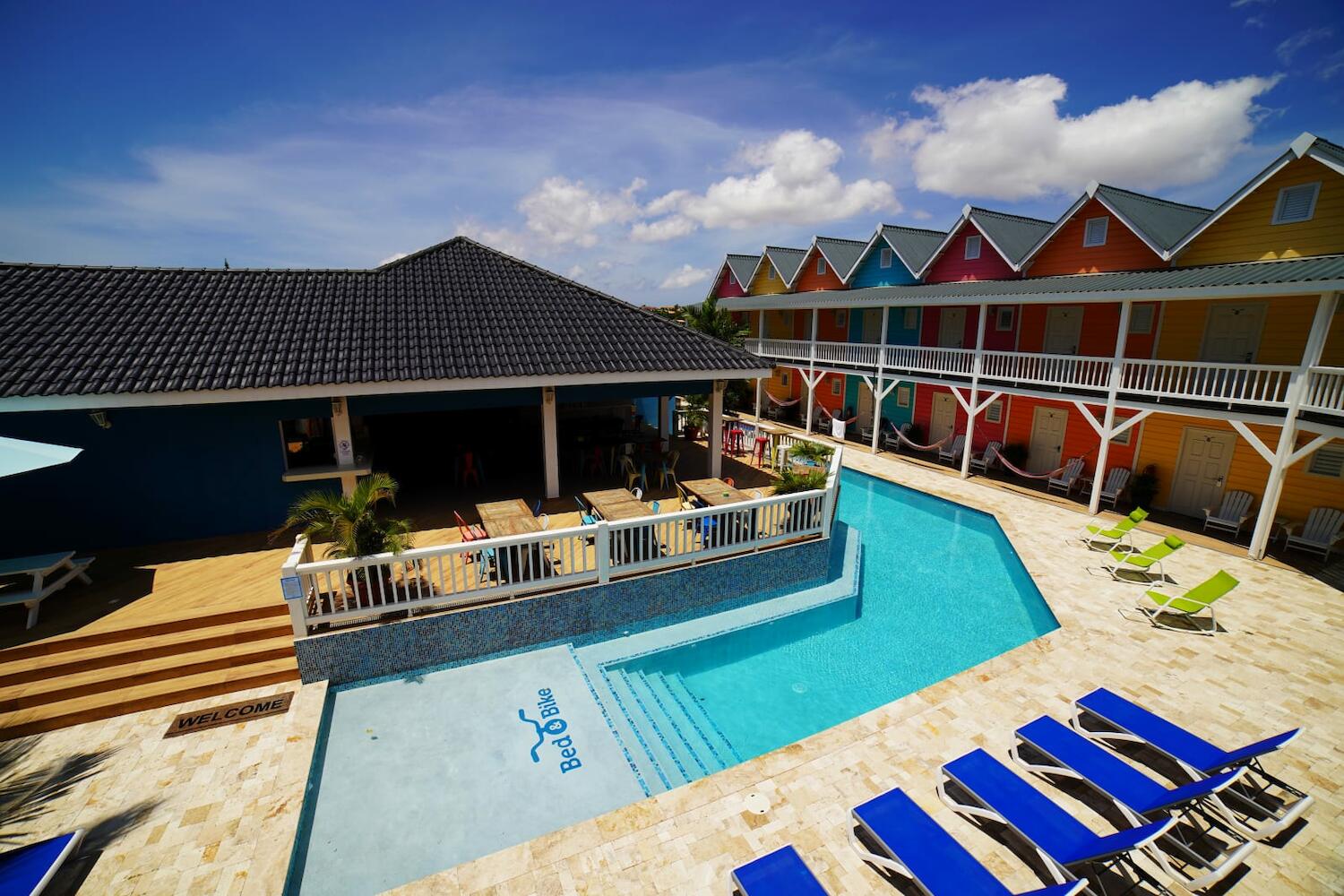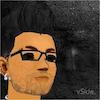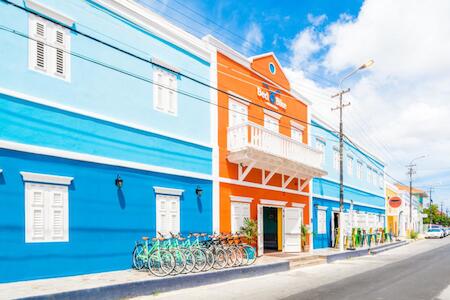Looking for budget stays in Curacao? This section is designed to save you time, money, and unnecessary stress. We've got insider tips to help you find affordable hostels and the cheapest places to stay in Curacao.

Curacao is a small island in the Caribbean Sea that is about forty miles to the north of Venezuela. It is a part of the Netherlands. The country, which has the same name, consists of the islands of Curacao and Klein Curacao, which is uninhabited. Today, it is one of the top holiday destinations for travelers from Europe, the US, and Canada, among other countries.
There is a lot to do in Curacao and even more to see. Staying on the island is easy enough, owing to the many hostels around the island. Get a hostel in Willemstad, one of the larger cities on the island. Hostels here can be a little more expensive but worth it due to the many sights located nearby.
Many bridges are present here, including the Queen Juliana Bridge, the highest in the region and one of the highest in the world. It is 185 feet above the ground and looks out across the bay of St. Anna. The Queen Emma bridge is another bridge in Willemstad that consists of floating pontoons that can be opened and closed to allow vessels to enter the St. Anna Bay.
If you want to see the natural wonders in Curacao, you should visit the Christoffel National Park, which is home to the Boca Grandi. This is an old cave network left behind by the Arawak Natives. Old paintings depicting the history of the indigenous population can be found in the caves. Nearby, you can see Mount Christoffel, the highest part of the island.
For marine wildlife, look no further than the Curacao Sea Aquarium. This is a very popular site on the island, which is also home to the Dolphin Academy. Other ocean-related sites include the Hato Caves, a cave network made of coral and limestone that was hollowed out by the sea but was relegated to a life on land when sea levels dropped. The caves are now home to a colony of bats.
Written by Travel Expert Curacao
 Jakob Lombardi
Jakob Lombardi
